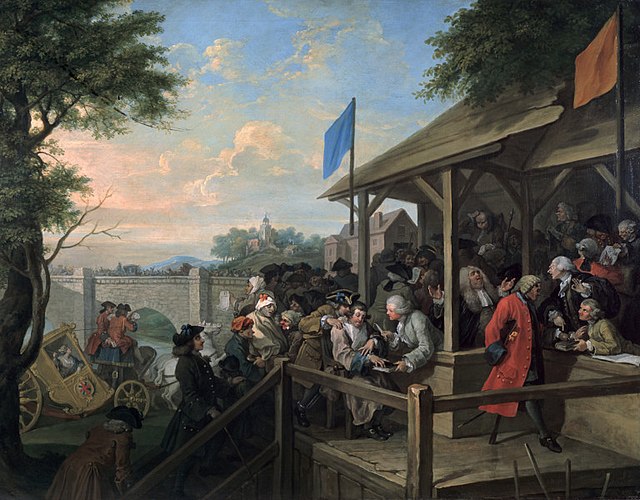Ashby v White (1703) 92 ER 126, is a foundational case in UK constitutional law and English tort law. It concerns the right to vote and misfeasance of a public officer. Lord Holt laid down the important principle that where there is injury in the absence of financial loss (injuria sine damno) the law makes the presumption of damage and that it is sufficient to demonstrate that a right has been infringed.
Ashby v White
Lord Holt CJ, by Richard Van Bleeck, ca 1700
United Kingdom constitutional law
The United Kingdom constitutional law concerns the governance of the United Kingdom of Great Britain and Northern Ireland. With the oldest continuous political system on Earth, the British constitution is not contained in a single code but principles have emerged over centuries from common law statute, case law, political conventions and social consensus. In 1215, Magna Carta required the King to call "common counsel" or Parliament, hold courts in a fixed place, guarantee fair trials, guarantee free movement of people, free the church from the state, and it enshrined the rights of "common" people to use the land. After the English Civil War and the Glorious Revolution 1688, Parliament won supremacy over the monarch, the church and the courts, and the Bill of Rights 1689 recorded that the "election of members of Parliament ought to be free". The Act of Union 1707 unified England, Wales and Scotland, while Ireland was joined in 1800, but the Republic of Ireland formally separated between 1916 and 1921 through bitter armed conflict. By the Representation of the People Act 1928, almost every adult man and woman was finally entitled to vote for Parliament. The UK was a founding member of the International Labour Organization (ILO), the United Nations, the Commonwealth, the Council of Europe, and the World Trade Organization (WTO).

At the Palace of Westminster, Parliament crowns the UK's constitution. The House of Commons represents around 65 million people in 650 constituencies. The House of Lords is still unelected but can be overruled.
Roman Britain from 43 to 410 AD was governed under the Roman Constitution, subject to the Emperor.
John Ball, a leader of the Peasants' Revolt of 1381 following repression after the Black Death, preached that "matters goeth not well to pass in England, nor shall not do till everything be common, and that there be no villains nor gentlemen, but that we may be all unied [sic] together, and that the lords be no greater masters than we be."
The Glorious Revolution of 1688 confirmed Parliament's supremacy over the monarch, represented by John Locke's Second Treatise on Government (1689). This laid the foundations for a peaceful unification of England and Scotland in the Act of Union 1707.






